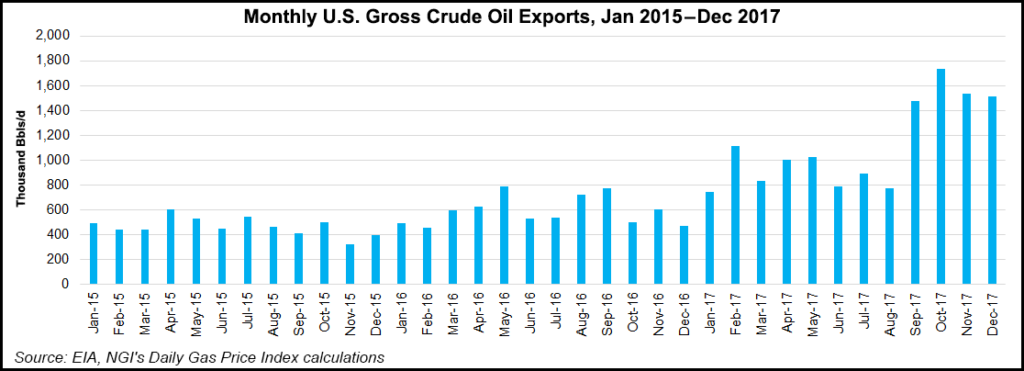Markets | NGI All News Access | NGI The Weekly Gas Market Report
Russia Used Social Media to Influence U.S. Energy Markets Since 2015, Lawmakers Say
Russia has used divisive and inflammatory posts on social media platforms in an effort to interfere with U.S. energy markets and influence domestic energy policy, according to a report issued Thursday by Lamar Smith (R-TX), chairman of the House Science, Space, and Technology Committee.

According to the report, an estimated 9,097 Russian messages regarding U.S. energy policy or energy events were posted on Twitter, Facebook and Instagram between 2015 and 2017. During the same period, there were an estimated 4,334 accounts on those social media networks registered to the Internet Research Agency (IRA), a company established by the Russian government “for the purpose of deceptively using various social and traditional media platforms to advance Russian propaganda,” according to the report.
More than 4% of all IRA tweets were related to energy or environmental issues, compared to 8% that were related to the 2016 U.S. election, Smith said. IRA targeted pipelines, fossil fuels, climate change and other divisive issues to influence public policy in the United States.
“Russia benefits from stirring up controversy about U.S. energy production,” Smith said. “U.S. energy exports to European countries are increasing, which means they will have less reason to rely upon Russia for their energy needs. This, in turn, will reduce Russia’s influence on Europe to Russia’s detriment and Europe’s benefit.
“That’s why Russian agents attempted to manipulate Americans opinions about pipelines, fossil fuels, fracking and climate change. The American people deserve to know if what they see on social media is the creation of a foreign power seeking to undermine our domestic energy policy.”
In response to a request from Smith last year, Twitter and Facebook provided documents to the committee that “confirmed that Russian agents were exploiting American social media platforms in an effort to disrupt domestic energy markets, suppress research and development of fossil fuels, and stymie efforts to expand the use of natural gas,” the committee said.
The main focus of the Russia efforts centered on disruption of pipeline development or the advancement of climate change policies targeting fossil fuels.
Last July, Smith and Rep. Randy Weber (R-TX) asked Treasury Secretary Steven Mnuchin to investigate allegations that Russia interfered in U.S. energy markets by making millions in contributions to environmental groups opposed to hydraulic fracturing (fracking) in order to sow domestic discord. The lawmakers accused Russia, through government-run corporations like Gazprom, of waging a “propaganda war against fossil fuels” by channeling funds to anti-fracking groups in the U.S. through Bermuda.
Also last year, a group of Democratic senators urged President Trump to direct the Department of Energy to examine the threats Russian hackers pose to energy infrastructure in the United States.
© 2024 Natural Gas Intelligence. All rights reserved.
ISSN © 1532-1231 | ISSN © 2577-9877 | ISSN © 1532-1266 |
